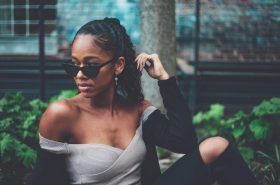Written by: Admin_SheEvo
I was probably 4 or 5 years old when I started noticing that my brother was “different” to all my other siblings. My brother is the fourth born and middle child of my mother’s seven children. Growing up I noticed that he was always reserved, never spoke a word and could hardly move from one place to another without instructions or assistance. Not long after, I learned that he had those limitations because he was “disabled”. He had developed a condition called epilepsy and, later, seizure complications resulting in physical and cognitive difficulties, among other long-life effects. All of which were sure to set him apart when surrounded by physically and intellectually “abled” people.
As a child, it was hard for me to understand. It made me sad and hopeless at the same time. I wished I could do more than just stare and wonder. But what else could a 5-year-old really do? His peers mocked him, children were scared to be near him, adults called him crazy, and strangers stared as if they were looking at a rare animal species. It was the early 2000s then, and now in 2022, at the age of 26 – as I try to manoeuvre around my first phase of adulthood, career aspirations as well as simply trying to stay alive simultaneously, nothing seems to be making sense. It appears that some of society’s perspectives on disability haven’t changed much. In the past 7 years (sounds surreal now as I look back – how time flies), I have been battling soft tissue sarcoma cancer, which has cost me more than I can recount. Cancer has mostly robbed me of the freedom to be myself without bearing the justification for why I am the way I am. Moreover, with the first major surgery leaving my left leg partially functional, I am now forced to depend on crutches and an ankle foot orthosis (AFO) to move around. These walking aids are, in all respects, not the most comfortable.
More than anything, even with cancer roaming freely within the bounds of my body, I am and have always been grateful for the ability to stand still and do my daily routine. Yet, although gratitude comforts me on most of my weakest points and darkest days, it’s not sufficient to comfort and further protect me from the world’s cruel judgements. It is that same cruelty I witnessed through my brother, being judged, looked down at and discriminated against.
Maybe “cruelty” is a bit harsh to use in this context. But still, I couldn’t find a better word to describe the feeling I experienced when a stranger commented and questioned my abilities as a healthcare professional based on my appearance. When I started working as a Pharmacist earlier this year, one of my biggest concerns was how people would treat me. In other words, I had what some people may call “what will people say syndrome”. Growing up around someone with a disability has not only taught me a lot about compassion and sympathy, but it has also shown me how cruel our world can be towards those who are considered different.
A few weeks ago, my fears came to life. When a stranger at my workplace looked at me and questioned my credibility as a healthcare professional based on my physical disabilities, it profusely shattered my heart. I couldn’t believe how ignorant some people can be. This stranger’s words sent a sudden churn in my stomach – and for a moment, I thought this man was a mentally challenged patient or someone under the influence of alcohol. Perhaps, that would have made the situation a little bit lighter. But this stranger was a decent man whom I would have presumed to have some sense at least.
“It must be the end of times indeed”, he said. “What kind of a doctor (which I am not, by the way) is also sick? Who in their right mind would accept treatment from someone who can’t heal themselves?…” As I stood amongst the crowd, just outside the hospital’s main entrance, with my white coat on and crutches within my tight grasp, I felt numb and without words.
Now, as I recall this encounter and my childhood experiences with my brother’s illness and disability, l wish (just as I did back in the early 2000s) that there was more I could do to get rid of people’s prejudices and discrimination against less abled people. But, in the end, I guess the message I am trying to send out (as simply put by the unknown writer) is, “In a world where you can be anything, be kind.”




